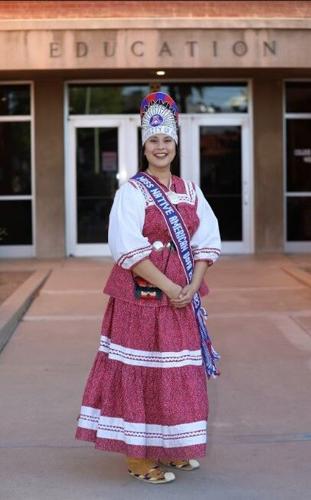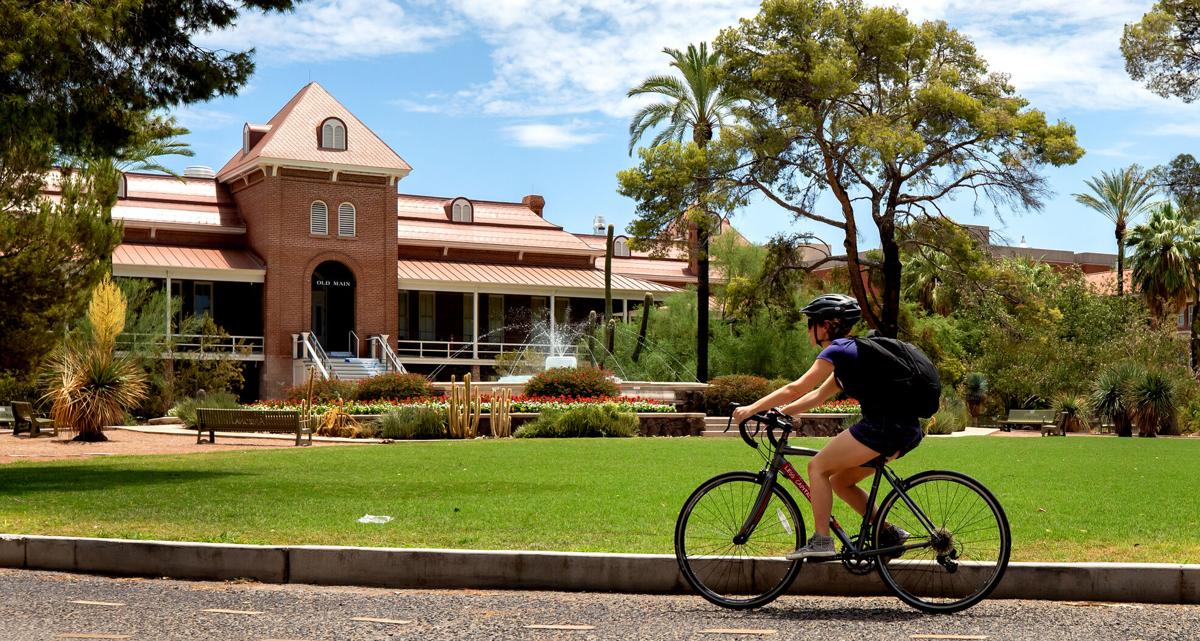A $1.2 million grant to a UA College of Education program that provides mentors and educational resources to Arizona’s Indigenous communities will double the number of mentors working with middle and high school students.
The Arizona Department of Education grant to Native SOAR, which stands for Student Outreach, Access and Resiliency program, will help double from 20 to 40 University of Arizona undergraduates to mentor students in the fall and spring semesters, said Amanda Cheromiah, Native SOAR director.
The program emphasizes Indigenous teaching and knowledge, and over 10 weeks, UA students from any major will spend up to four hours a week mentoring middle and high school students about attending college, cultural resilience, leadership skills and identity exploration. The mentors, who mostly are Indigenous, must enroll in a three-credit Native SOAR class and are paid for their work as mentors.
Recent mentor Cassandra Perez is from the San Carlos Apache Reservation, near Globe, and this past academic year she was a mentor to two Pascua Yaqui students attending Tucson High Magnet School. Both were juniors, and Perez shared with them what college life is like, including living on or off campus; financial aid and scholarships; study habits; and the differences in going to a community college first and then transferring to a four-year institution, or immediately going to a university after high school.
Perez said giving advice and helping high school students learn about college was fulfilling. She said her involvement in the program was “one of the best things” that happened to her.
“Native SOAR gave me a chance to share my story, but it also just gave me a chance to be myself, talk with other people from different backgrounds and to hear their stories as well,” said Perez who also received support from her parents and grandparents, adding that she lost her maternal grandparents and an uncle within three weeks from COVID-19 when she was a junior.
Perez, who also was mentored in the Native SOAR program by Cheromiah and law school students, graduated in May with a bachelor’s in law from the College of Social and Behavioral Sciences. The 22-year-old plans on attending the UA James E. Rogers College of Law and enroll in a dual degree program to pursue a law degree alongside a master’s degree in either American Indian studies or Indigenous governance.
The Native SOAR program also offers workshops emphasizing Indigenous knowledge and best teaching practices to all local K-12 educators. The sessions are taught by Native SOAR staff and university students.
“Historically, Indigenous students have lower enrollment, retention, and graduation rates in higher education compared to other student populations,” said Cheromiah in a news release. “Native SOAR closes educational gaps by providing culturally responsive programming and mentorship that increases the number of Indigenous students who enter and graduate from college,” said Cheromiah, a member of the Laguna Pueblo of New Mexico.
Cheromiah, who runs the program with two graduate student assistants, Jeremiah Foster and Myrhea Sherman, said even though mentoring is at the core of the program’s mission, Native SOAR also includes resources related to recruitment, retention and career development.
Since 2014, nearly 300 undergraduates have served as college mentors who represent over 50 majors, said Cheromiah. Most of the mentors are members of Arizona tribes, but there are mentors who are enrolled in tribes outside the state. Cheromiah said she is proud of the program’s ability “to build the confidence of Indigenous youth and educators, create and implement culturally relevant curriculum, programming and marketing materials designed for Indigenous students and communities and to amplify our narratives as Indigenous people in education and beyond.”
In the past eight years, mentors have spent nearly 7,000 hours advising more than 6,900 kindergarten through 12th grade students throughout the Southwest and served more than 140 schools mostly in the state, the program’s data shows.
During COVID-19, the program’s services were offered virtually with funding from the College of Education and the Office of the Provost. “Our ability to mentor online and in person really helped us create healing spaces and spaces of innovation with our Indigenous communities,” said the program director. She said students and educators in rural areas had asked for better access to technology and online resources.
The new funding will help the program continue to reach those communities. Over three years, the program will purchase 750 tablets, which will be loaded with mentoring resources for middle and high school students, said Cheromiah. An additional 65 tablets for program staff and educators also will be purchased, and more workshops and professional development opportunities to K-12 educators will be offered.









